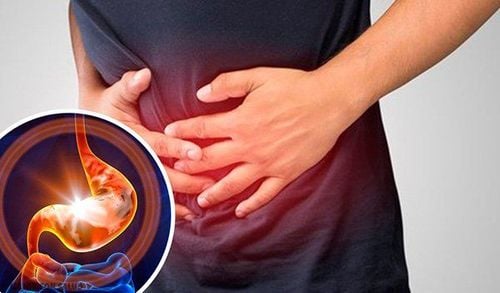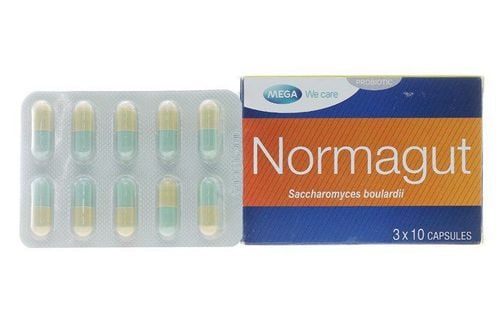This is an automatically translated article.
The article was professionally consulted by Specialist Doctor I Dong Xuan Ha - Gastroenterologist - Department of Medical Examination and Internal Medicine, Vinmec Ha Long International General Hospital.Common symptoms of digestive disorders in adults and children are bowel disorders, abdominal pain, indigestion, due to an imbalance of intestinal bacteria, leading to intestinal dysbiosis.
1. Causes of Digestive Disorders
There are many causes of symptoms of digestive disorders, typically due to some causes as follows:
Drinking a lot of alcohol: This is a common cause of symptoms of digestive disorders in adults. Drinking alcohol for a long time will make the body lose a large amount of digestive enzymes, and lead to an imbalance of intestinal microflora. Besides, drinking a lot of alcohol will damage the intestinal lining, leading to irritable bowel syndrome. Therefore, often after each drinking session with alcohol, patients often experience symptoms of digestive disorders such as abdominal pain, bloating, bloating, loose stools the next morning. Abuse of antibiotics: This is a common cause in young children, causing digestive disorders in children. Some antibiotics are especially easy to lead to an imbalance of intestinal bacteria, parents or children use drugs indiscriminately, causing digestive disorders. If a patient takes antibiotics continuously for a long time, diarrhea can become worse and antibiotic resistance will occur. Therefore, when using antibiotics, especially for young children, it is necessary to have a specific prescription from a doctor. Unhygienic diet: Eating unhygienic or using foods of unknown origin can easily lead to abdominal pain, diarrhea, intestinal infections. In the first months of a child's life, due to the immature digestive system and immature immunity, children are very susceptible to digestive disorders. In addition, for children, digestive problems can stem from parents choosing food ingredients that are not suitable for the child's age, psychological instability due to studying, exams, etc. Later, when the structure of the child's digestive system gradually improves, this situation will recede.
Trắc nghiệm: Làm thế nào để bảo vệ lá gan khỏe mạnh?
Làm test trắc nghiệm kiểm tra hiểu biết về gan có thể giúp bạn nhận thức rõ vai trò quan trọng của gan, từ đó có các biện pháp bảo vệ gan để phòng ngừa bệnh tật.2. Symptoms of Digestive Disorders
Common symptoms of gastrointestinal disorders in adults and children include:
Bowel disorders: Almost slowly progressing, but with gradual severity. Patients often feel severe abdominal pain, sometimes constipation, sometimes diarrhea, irregular bowel movements as before. Patients may have more constipation than diarrhea or vice versa, or both may alternate between constipation and diarrhea. Abdominal pain: Abdominal pain can be dull or intense. The location of pain is usually in the lower left abdomen, but can also be in many different places. In some cases, the pain may radiate to the back. Indigestion: Bloating is one of the most common digestive disorder symptoms. Patients present with abdominal distension, continuous belching or excessive bowel movements. Signs of digestive disorders in children can be expressed through anorexia, vomiting, fussiness,... Symptoms of digestive disorders in pregnant women are similar to those in adults, but often occur in children. first and third trimesters of pregnancy. Some other symptoms of digestive disorders, including: heartburn, bitter or bad breath, nausea, vomiting, ...

3. Symptoms that need to be taken to the doctor immediately
Parents, when seeing children with the following digestive disorders, need to see a doctor as soon as possible:
Pass loose stools, many times a day. Vomiting recurs, vomiting a lot, making children tired, unable to eat. Severe illness, accompanied by fever or higher fever. Children are very thirsty. Eating very poorly or refusing to breastfeed. The condition did not improve after 2 days of home treatment.
4. Prevention of digestive disorders
In order to properly prevent gastrointestinal problems, some advice should be followed:
Supplementing with probiotics and digestive enzymes to help balance the microflora intestinal tract. Do not abuse stimulants such as alcohol, tobacco. Ensure hygienic, safe and reasonable eating and drinking. You should create a habit of going to the toilet regularly, on time, and exercise regularly. Add more fiber to your daily diet. Eat a lot of green vegetables, drink a lot of water, especially for patients with signs of constipation. In addition, during meals should eat slowly, chew well, relax, avoid stress. Do not buy drugs on your own, but should consult a medical professional. Currently, Vinmec International General Hospital is a prestigious address trusted by many patients in performing diagnostic techniques for digestive diseases, diseases that cause chronic diarrhea, Crohn's disease... Along with that , at Vinmec Hospital, screening for gastric cancer and gastric polyps is done through gastroscopy with Olympus CV 190 endoscope, with NBI (Narrow Banding Imaging) function. ) results in clearer images of mucosal pathology than conventional endoscopy, detecting ulcerative colitis lesions, early gastrointestinal cancer lesions...
Please dial HOTLINE for more information or register for an appointment HERE. Download MyVinmec app to make appointments faster and to manage your bookings easily.














